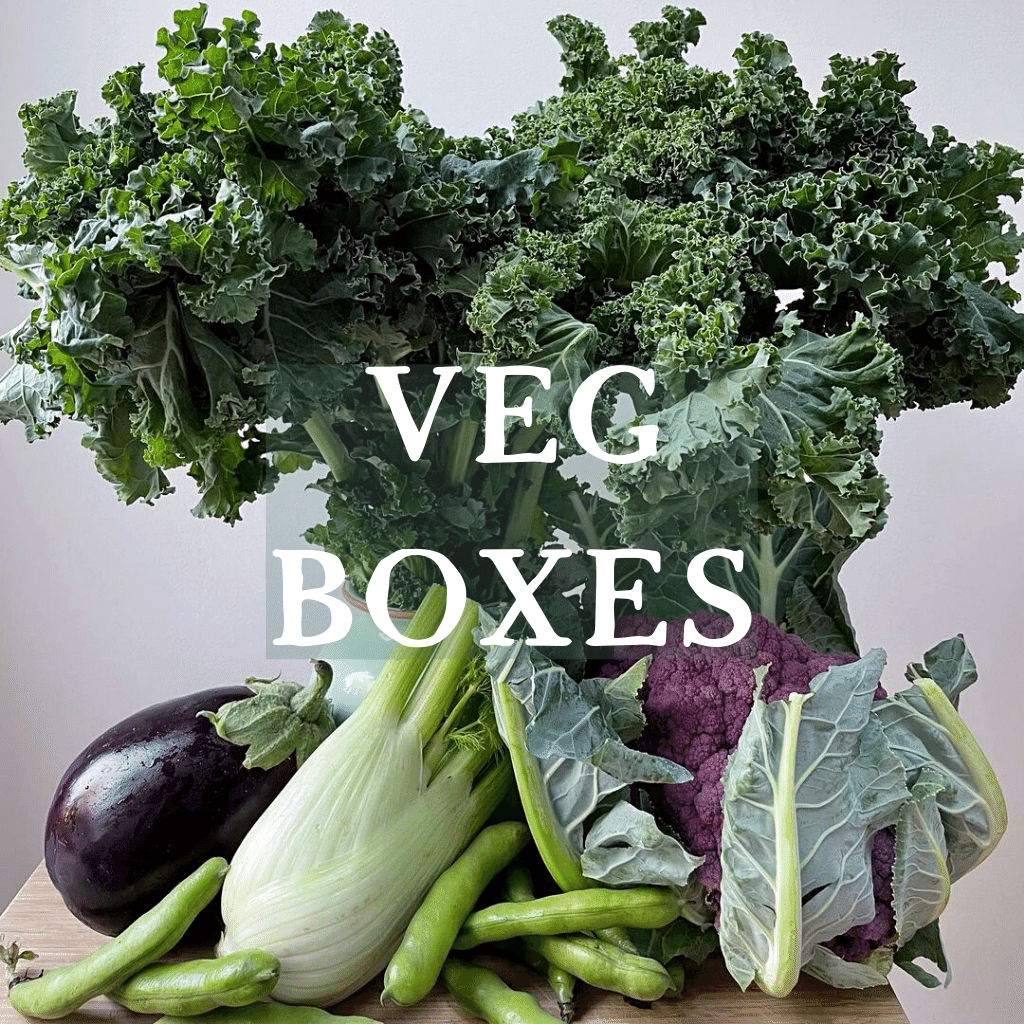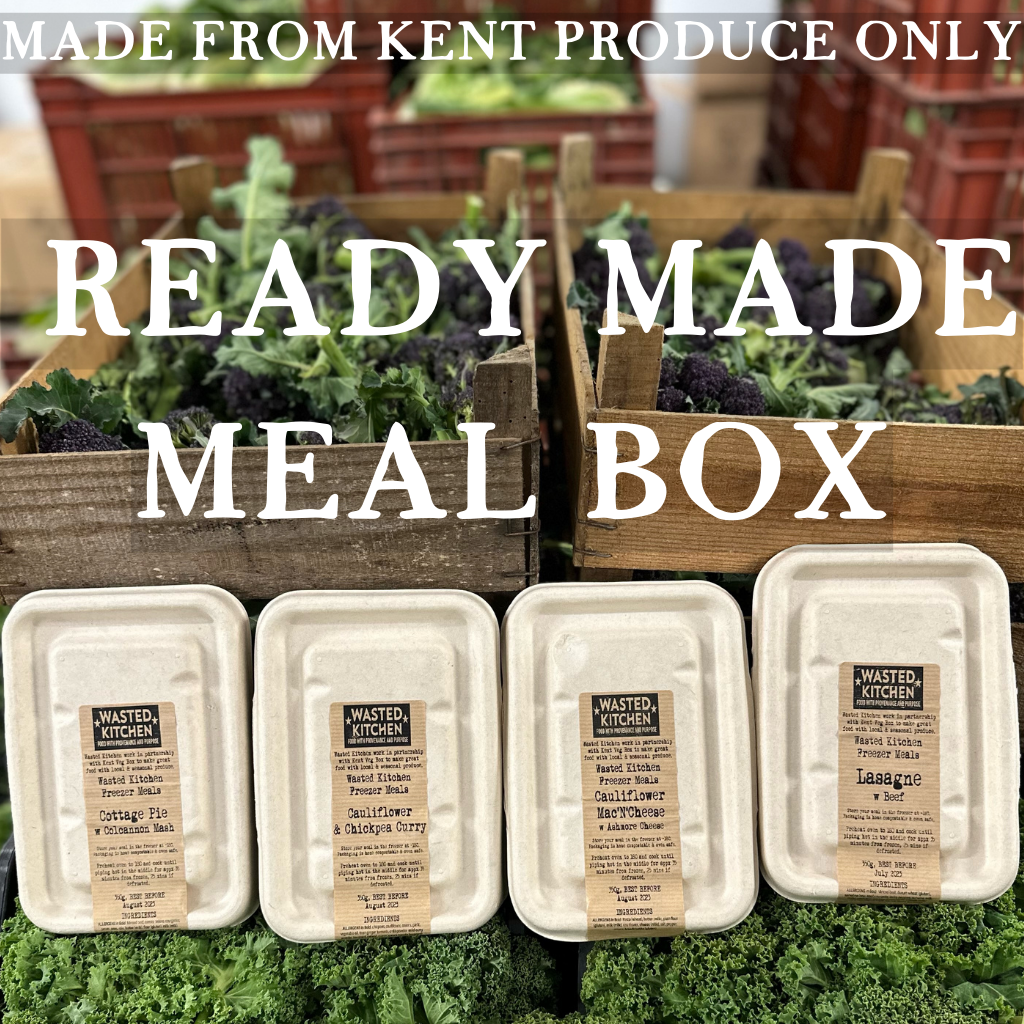
Packaging and Logistics: Cutting Carbon Emissions
(Updated Jul 25)
As you may have noticed we are all about Kent producers, all about reducing food miles.
But we don't stop there, the way we pack and deliver our goods to your doorstep has been developed to minimise emissions and be as environmentally friendly as possible.
Our approach is :
- Just REDUCE as much as we can
- if not 1. the maximise REUSE
- if not 2 only accept RECYCLE
So let's have a look at our packaging first. Our standard box for delivery is the ubiquitous cardboard box. Yes, it is made from recycled cardboard but we go further. As we use our own delivery drivers and not couriers, we collect our boxes from all our customers when we next deliver. They get used quite a few times before they give up the ghost and have to be recycled. This is only possible because we invested in our own delivery team.
During the month of July 24, we used approximately 4000 boxes for deliveries. During the same month we only purchased 1500 boxes. From cradle to grave a kilo of cardboard admits about a kilo of CO2. Some quick maths shows that by doing this we save well over a tonne CO2 per month.
Finally on the cardboard boxes we do not use plastic sticky tape, we use copper staples. This not only means less single use plastic on the boxes but also means the boxes are not damaged so quick on opening that we get much more use from them.
All of our soft fruit/eggs punnets are made from recycled plastics and are recyclable. As are our milk containers.
As our produce comes from Kent and it's not shipped hundreds or thousands of miles to get to us, it arrives in its natural state where we can. No bags, no boxes, no cling film. Some produce, such as strawberries, has to be prepacked to keep it clean. Nearly all of it comes in returnable crates that we take back to the farms the following week.
If we need to bag some produce we use compostable bags that our customers can reuse as waste food bags. Some produce such a soft fruit and dairy, comes in plastic containers but these are recyclable. Unfortunately, we cannot send them back to the farms due to contamination risk.
For our chilled and frozen produce we use returnable cool bags and ice packs. All we ask about customers is that they are rinsed off and dried before returning. Again using our own drivers means we can do this not only economically but sustainably too.
So what about our deliveries and logistics? Again Our way of working has been developed to minimise emissions and maximise efficiency. As mentioned above we have our own fleet of vans and drivers so that we can achieve our aims.
Firstly we do not offer delivery time slots to our customers. This is means we can use a delivery route that minimises time and distance between each drop rather than fly around like a berserk dodgem car all over town. We specify a delivery day and give an approximate time of delivery to our customers. We don't ask customers to sign, we leave in a safe place, and this means we can deliver early in the morning when there is less traffic.
So what could we do better? We're not perfect, far from it. There are several areas we are keen to improve on, where we are waiting on improvements in technology for reduction in cost.
Those areas are:
- Plastic bin liners. We use a few to protect on the doorstep but we know they are not the best. Prices for compostable bags are still very high, but falling. We are monitoring this and hoping to move away from these by the end of 2024
- We still have some very small use of single use plastics, generally film around ambient products. Our producers are actively looking to switch to recycled/recyclable cardboard
- Electric vehicles. Unfortunately these just do not have the range and capacity to cope with our deliveries. To use them we would have to compromise the way we deliver and from an emissions perspective this would just rob Peter to pay Paul. Our hope is that maybe hydrogen powered vehicles will offer better alternative.
Hopefully you can see that we have kept sustainability and emission reduction front and centre of our thoughts when developing our business over the past 20 years. We find that business efficiency from an economic point of view goes hand in hand with efficiency from an environmental point of view. Sure it's easier now but you still have to put the effort in.






1 comment
Just had my first box delivered this morning and am so pleased with the contents. Everything so fresh, looking forward to adding it to the various meals over the coming days. So glad I found you
Ken Parker
Leave a comment
This site is protected by hCaptcha and the hCaptcha Privacy Policy and Terms of Service apply.